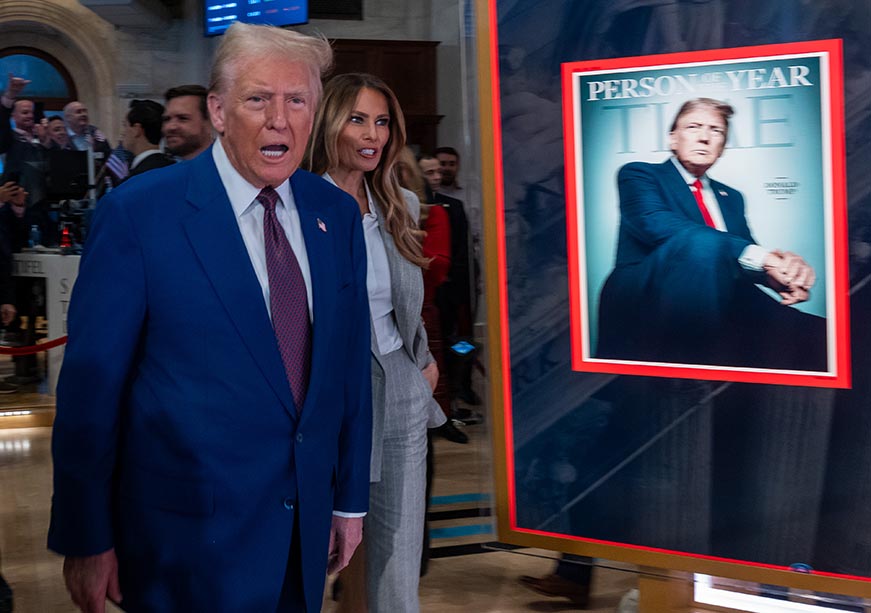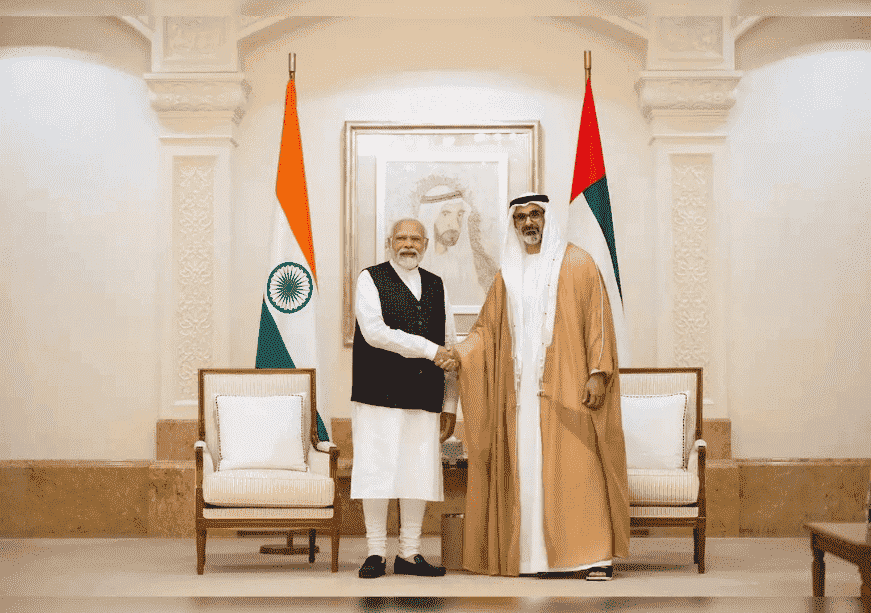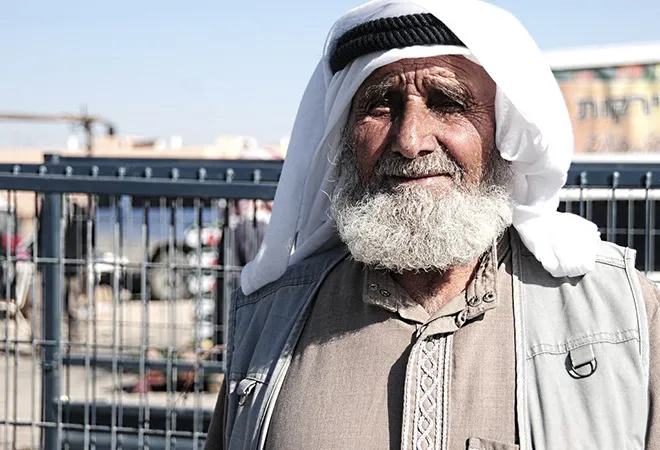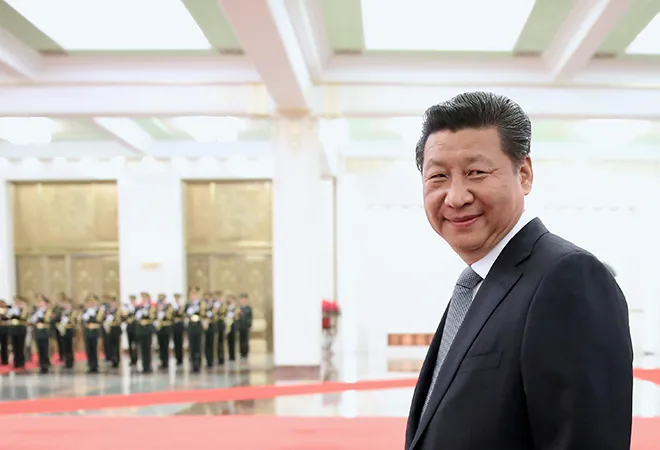While Donald Trump has promised to bring peace to the Middle East, his intention to support the state of Israel and his ambivalent track record makes the future uncertain
In his public address to his supporters after winning, the newly elected 47th President of the United States (US), Donald Trump, said, “I’ll stop wars”, without explicitly mentioning the ongoing war in Gaza. He also asserted that during 2017-2020, his presidency saw no major civil wars involving the US, reiterating his intent to restore world peace. “This will truly be a golden age of America”, he emphasised, while constantly pledging that the Republicans would make America great again through his “America First” policy. This article traces the currency of President Trump’s claims to restore world peace, particularly its implications for peace in the Middle East, by analysing America’s foreign policy in the region during his earlier presidency while simultaneously evaluating the possible impact of his presidential victory on the Middle East.
The Daesh crisis and the Obama vs Trump debate
Trump became the 45th President of the United States in January 2017, winning 306 votes as opposed to 232 won by the Democratic candidate Hillary Clinton. During his predecessor Barack Obama’s tenure in 2014, Daesh (also known as ISIS/ISIL or the Islamic State), a former affiliate of al-Qaeda in Iraq, gained global attention when its militants occupied large swathes of land in both Iraq and Syria by taking advantage of sectarian strife in Iraq and the ongoing Syrian civil war. The same year, the Obama administration launched a targeted military operation called “Inherent Resolve”, using US and allied troops to aid other non-specified coalition efforts to counter Daesh rather than engaging in significant ground operations.
The Trump administration continued implementing Obama’s strategy, although employing the new “rules of engagement”, which involved “greater risks in return for faster, more decisive operations”. As a result, backed by the US-led coalition airpower, Mosul was recaptured by Iraqi forces in July 2017 and Raqqa by the Syrian Democratic Forces (SDF) in October 2017 after months-long battles. By December 2017, Iraq declared its victory over Daesh and in February 2019, the SDF besieged Daesh in the village of Baghouz, its last territorial enclave, thus ending ISIS’ physical caliphate in both Iraq and Syria. It is worth noting that within two and a half years of Obama’s military campaign, Daesh lost its only international border with Türkiye, and approximately half of its territory had already been liberated by the time Trump joined the office. The remaining territory was recaptured within the next nine months, demonstrating the rigour of Trump’s military operations.
During Trump’s tenure, significant tactical changes were made to Obama’s military strategy. For instance, Trump “delegated authority to the right level to aggressively and promptly move against enemy vulnerabilities.” In other words, fewer sign-offs were required when those on the ground requested airstrikes due to a faster decentralised approval process. As proclaimed by Trump himself, “We have made, alongside our coalition partners, more progress…in the past several months than in the past several years.” Rather than establishing peace in the Middle East, Trump’s broader objective in defeating Daesh has been to prevent American casualties, illustrating his “America first” motto. That being said, Daesh was almost defeated within a year of Trump’s presidency, which eventually paved the way for reconstruction and peacebuilding initiatives in the recaptured territories of both Iraq and Syria.
From 2017 to 2020: Trump’s foreign policy in the Middle East
During Trump’s time in office, although his constant “wading in and out of conflicts” risked further destabilisation in the region, he significantly reduced the US presence in Iraq and Afghanistan, fulfilling his promise to pull the US out of endless wars. In 2018, Trump withdrew from the Iran nuclear deal, which aimed to have P5+1 sanctions lifted on Iran in exchange for its agreement to serious restrictions on its nuclear development. The US withdrawal from the deal was seen as a new crisis in the making. Around the same time, the Trump administration pursued a maximum pressure campaign against Iran, thereby increasing the risks of escalation and conflict with Iran. However, Trump did not respond to
Iran’s provocations in the Persian Gulf in the summer of 2019, thereby maintaining peace in the Middle East.
About the Israel and Palestine issue, Trump defended Israel’s right to security throughout his first term while simultaneously acknowledging the right of the Palestinians to freedom. This can be seen in his endorsement of the two-state solution in 2018, claiming that it would work best for the broader peace in the Middle East. He stated in a press conference, “My vision presents a “win-win” opportunity for both sides, a realistic two-state solution that resolves the risk of Palestinian statehood to Israel’s security.” Trump also mentioned unveiling a plan for a final peace deal within months, stating, “It is a dream of mine to be able to get that done prior to the end of my first term.” However, Palestinians have been sceptical of the promises made by Trump, particularly citing his controversial decision to relocate the US embassy from Tel Aviv to Jerusalem back in 2017.
Ongoing war in Gaza and Trump’s renewed pledge for peace
Fast forward to 2024. Trump has won the 2024 presidential election in the US, defeating the Democratic candidate Kamala Harris. In her closing pitch for the presidential campaign, Harris promised to end the war in Gaza, a rather weak attempt to change the narrative regarding her party’s unrelenting military support to Israel. Trump has also pledged to bring “peace” to the Middle East, suggesting that he would end the ongoing war in Gaza, which has killed around 45,000 individuals, devastated the region, and brought neighbouring countries such as Lebanon, Yemen, Syria, and Iran to be engulfed in the war. Although indecisive in his statements regarding foreign policy, Trump has a reputation for keeping the promises he made during his campaign.
The Gaza war poses a serious threat to peace in the Middle East and beyond, therefore, it is inevitable that Trump would make some difficult decisions, balancing his support for Israel and his commitment to world peace. For months during his campaign, Trump has asserted to end the ongoing war in Gaza, even setting a timeline for Israel, asking it to end its campaign against Hamas by the time he officially enters office. If reports are to be believed, Trump has pressured Hamas to backpedal on key issues during recent ceasefire and hostage-release talks with Israel. For instance, Hamas has now conceded to temporary intervention through Israeli forces staying in the Gaza Strip after the fighting ends, as well as agreed to provide a complete list of hostages, including Americans, who will be released as part of the ceasefire agreement. Trump’s warning that he wants to see a deal before he enters office has been perceived as “a big factor” in these recent concessions. Trump has been opposed to wars, and it is doubtful that his support for Israel would include an extension of the ongoing war in the region.
Trump will prioritise his promise to “Make America Great Again”. Consequently, his foreign policy would emphasise cutting down on war funding to external actors, including Israel, while also restraining American military assistance. Trump has already made several statements throughout his campaign asserting his intention to end the ongoing war in Gaza. Although he has had a complex relationship with Israeli Prime Minister Benjamin Netanyahu, Trump, it is believed, can pressure him to end the war, adding to the domestic pressure on Netanyahu in Israel. Alternatively, Trump might push for Netanyahu’s exit, if required, while keeping his support for Israel intact. Trump has a reputation for maintaining strong relations with leaders in the Arab world who could, in turn, further influence Hamas for the safe return of hostages. However, it is still unclear how Trump would navigate his desire to show strong support for Israel while also bringing the war to an ultimate closure, recognising Palestinian rights to humanity, dignity and freedom.
Conclusion
Trump’s previous tenure was marked by strategic military initiatives prioritising quick results, as evident in his approach to defeating Daesh while maintaining an “America First” stance. His past actions, such as his stance on the Israel/Palestine issue and his abrupt withdrawal from the Iran nuclear deal, depict a leader with indecisive decision-making and a lack of lasting diplomatic solutions. However, Trump’s 2024 election victory signals a new phase in US foreign policy towards the Middle East, with the potential for both progress and setbacks. While his renewed “America First” approach may lead to a more restrained US presence in the region, his promise to end the war in Gaza and broker peace is fraught with complexities. Ultimately, his second term will test his ability to balance competing interests and navigate the delicate dynamics of Middle Eastern geopolitics.
Sabine Ameer is a doctoral researcher in Politics and International Relations at the University of Glasgow,











